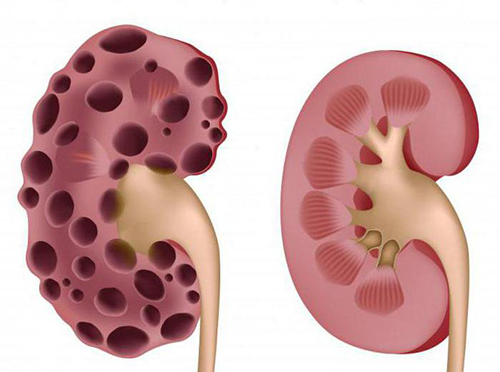 How to Get an ADHD private adhd assessment cost Diagnosis
How to Get an ADHD private adhd assessment cost Diagnosis
Getting an ADHD private adult adhd assessment near me diagnosis can make a significant changes to your attitude, outlook and plans. However, it’s not as easy as just booking an appointment.
GPs aren’t qualified to diagnose ADHD as such, and they can only refer you for an assessment by an expert. This is typically an audiologist or psychiatrist.
What is ADHD?
A person might be diagnosed with ADHD when they show signs that are more severe than those of the general population. They may have trouble paying attention, difficulty staying focused on activities or tasks and impulsive behavior (for example, making rash decisions, getting impatient or snappy with people, or interrupting others during conversations), and hyperactivity.
ADHD can cause problems in many areas of your life, like at home, school, and at work. It can cause difficulties in relationships and make it hard to get along with other people. It can also cause feelings of frustration as well as low self-esteem and stress for the entire family. The good news, however, is that treatment can help to alleviate these issues.
People who have a diagnosis of ADHD are able to seek assistance by a doctor to manage their symptoms. They might be prescribed medication or behavioural therapy. People who have a diagnosis of ADHD can also seek help from organizations and groups.
If a person wants to be evaluated for ADHD, they can request their GP to schedule an appointment with a specialist. They can also print copies of the NICE 87 guidelines, which states that only a specialist is able to diagnose or refuse a diagnosis. People should be aware, however, that a private adhd assessment sunderland healthcare provider does not have the right to bend the rules just because they are paid for their services.
There are a variety of specialists who can diagnose ADHD including psychologists and psychiatrists. A psychiatrist is a doctor who can diagnose and prescribe medications, while psychologists understand how the brain works and can offer advice on day-today strategies.
The NICE guidelines say that psychiatrists should examine individuals for ADHD who have had their symptoms for longer than six months. If they determine that a patient does not meet the requirements for a diagnosis, they will explain the reason. They will suggest that the patient seek a second opinion with another doctor. This could be done in conjunction with the initial assessment.
How do I get an medical diagnosis?
A diagnosis of ADHD can help reduce feelings of embarrassment and frustration. A diagnosis can also aid in finding the best treatment for your symptoms. It is important to assess for other conditions which can mimic the ADHD symptoms, such as depression, anxiety, bipolar disorder, and sleep disorders. A diagnosis may be a great relief for some, particularly children who feel overwhelmed by their school struggles and are unable to comprehend the reasons.
During the ADHD assessment, you will be questioned by your physician and possibly others, such as a friend or family member teachers, coaches or daycare providers. They will ask about your child’s or yours’s symptoms, how they affect you or your child at home, at school, and in social situations, as well as your family and medical history. They might also request to see school or work records.
A psychiatric doctor (known as a psychiatrist) is the person who diagnoses ADHD and prescribes medication. They must meet specific criteria in order to be able to do this.
You can ask your GP to refer you to a specialist service or self-refer directly to a private health provider such as Priory which is a specialist in adult ADHD assessments. You can choose to go with a provider that is accredited by the NHS or one that isn’t but this will affect how long you will have to wait for an appointment.
If you choose to go with private healthcare providers be sure the doctor is a licensed healthcare professional and registered with the General Medical Council. Also, you should review the reviews before deciding on the private Adhd assessment harrogate option.
It’s crucial to be honest and open when discussing your issues with an expert in healthcare. The person evaluating you will be looking for patterns of symptoms that meet certain criteria to determine if you suffer from ADHD and it’s crucial that they know all of your challenges.
What is the outcome if I fail to receive a diagnosis?
The process of diagnosing ADHD is a rigorous one. It is essential to choose a specialist you feel comfortable with. It’s worth getting recommendations from friends, GPs or other health professionals you trust, and then conducting some research on them, examining their professional certification and academic credentials.
The psychiatric specialists who conduct private assessments use a set of criteria that was that are published by the American Psychiatric Association called the Diagnostic and Statistical Manual of Mental Disorders Fifth Edition’ (DSM-5). It identifies the signs that should be present in order to determine ADHD. The doctor will look over your medical and family histories and interview you in detail. They will also examine your current symptoms and assess how they have been impacted by your life. They may also request your school or work reports or a copy of your results from the self-screening tool.
Once the diagnosis is established, it is common for people to experience an overwhelming feeling of relief. It’s a moment of relief to realize that a lot of their difficulties in life aren’t their fault and that they were actually caused by the way in which their ADHD affected them. For those who get their diagnosis later in life, it is usually more important. It can help them find sense of the years of frustration and failure they’ve endured due to their undiagnosed ADHD.
The process for children is slightly different. It is more typical for children to be diagnosed in elementary school, when it becomes clear that their inability to focus or follow instructions are impacting on their school performance. It is possible that their symptoms were misinterpreted as a lack of effort or apathy or that the child has been performing poorly for a long period of time.
It is crucial to speak to your child’s teachers when you suspect they might be suffering from ADHD. Encourage them to seek an official diagnosis from a qualified psychiatrist or psychologist. You should also make an appointment with your GP who can likely assist you in pursuing the diagnosis of your child.
What happens if a physician doesn’t diagnose me?
ADHD is a condition that can be a challenge for adults to live with. For many people, getting an diagnosis and finding proper treatment can completely change their lives. It can help people find the right job, improve their relationships and get on the right track. For those who have struggled with undiagnosed ADHD throughout their life, a diagnosis may bring relief and freedom from feelings of shame and guilt.
It can be difficult to determine ADHD, especially for those who do not have access to healthcare. Gender, racial and economic factors can play a role in the likelihood of a person being diagnosed with ADHD or not.
If a person suspects they might have ADHD and is concerned, they can begin by asking their doctor for the recommendation of an ADHD specialist. They may also ask their physician or a mental health professional for recommendations. They should be wary of questionnaires that claim to diagnose ADHD, as these are not always tested or validated scientifically. The only way to obtain an accurate diagnosis is to visit an accredited mental health professional who is able to perform ADHD assessments for adults. This includes clinical psychology and psychiatrists as well as neurologists.
To receive a diagnosis of ADHD, the person must demonstrate that ADHD has an impact on their life. This usually involves showing that the symptoms are causing impairments in at least two crucial settings, such as the workplace and at home. The doctor will examine the symptoms and the patient’s medical history and will typically conduct an exhaustive interview. This may involve discussing the person’s emotional, social and academic life. The clinician will also take a look at the family history and any other medical issues that may be present.
It is also important to keep in mind that some medical conditions, like seizures and thyroid problems, can cause symptoms that look like ADHD. For this reason, it is essential to confirm that all symptoms are real and that the symptoms are caused by ADHD and not a different disorder or illness.




